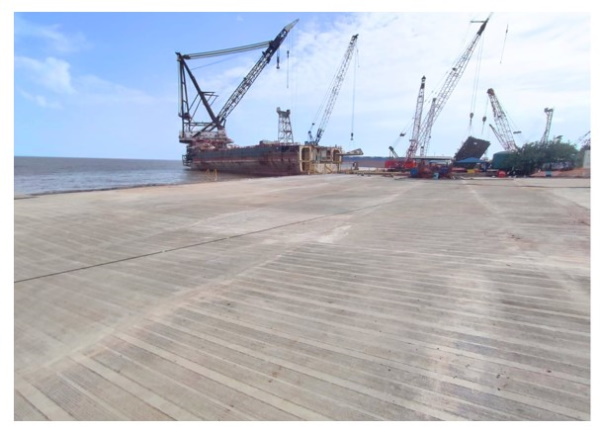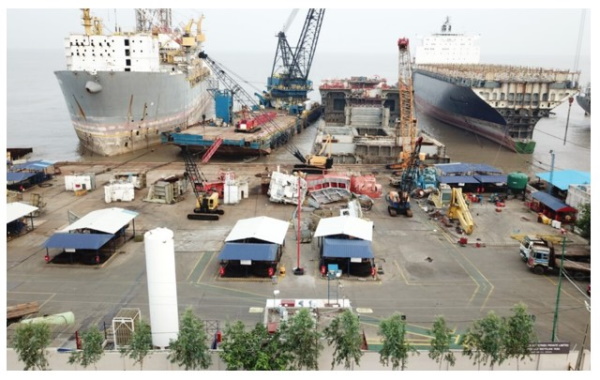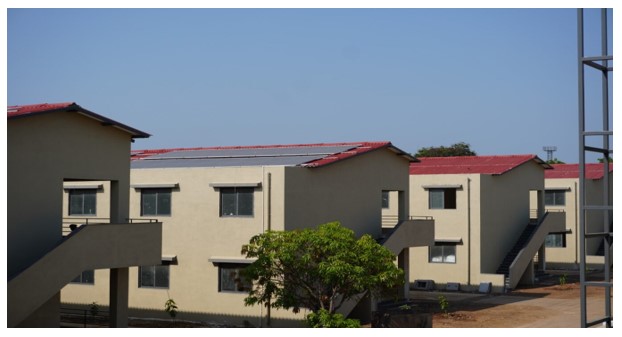Every rule or regulation brings positive and negative implications to the industry, and the new UAE Ship Recycling Regulations are no exception. To fully understand the impact of this regulation on the maritime sector, it is important to take a broader standpoint into account. While the EU Ship Recycling Regulation (SRR) is currently considering visiting ship recycling yards in the Asian Subcontinent to assess their suitability for inclusion in the EU list, this new regulation is a major setback for both hopeful yard owners and the many individuals whose livelihoods are dependent on these yards and this industry. The UAE Ship Recycling regulation will be enforced starting from 26 June 2025. The legislation forbids the practice of beaching and landing methods and emphasizes the need to have recycling facilities that meet extremely stringent requirements. This regulation exceeds the requirements set by the EU Ship Recycling Regulation by prohibiting the landing technique often used in Aliaga, Turkiye. In addition, they prohibit the practice of re-flagging vessels to scrap them at beaching or landing sites.
While the potential benefits of this proposal may seem promising at the moment, but it is the ship recycling yards in the Asian Subcontinent that will bear the consequences. These yards have consistently invested in and improved their facilities, with the expectation of being able to recycle vessels registered with EU flags and achieve their long-held aspirations. The regulation prohibits the Beaching or Landing method, which is commonly practiced by yards in India, Pakistan, and Bangladesh. The Beaching method and Landing method are commonly referred to as negative even though the whole life of the vessel is continuously in water and has the same effect of the vessel while sailing as compared to beaching. Beaching could be found hazardous only if there is rock based beaching, but this is not the case in either of the 3 locations, all of them having soft sands which ensures that none of the vessel will have damages when beaching method is being used. It is also important to mention that, once the vessel is anchored, every step of the recycling process is carefully planned and executed. Actions often speak louder than words but that is definitely not the case here, and the true efforts made by these yards have been overshadowed by the prevailing negative narrative surrounding the Beaching and Landing method.

Impermeable floor and large offshore cranes at Priya Blue Green Ship Recycling yard (HKC Certified, EU SRR compliant by LR Class) in Alang
The presence of large offshore cranes ensures full access to all areas of the vessel, facilitating meticulous positioning onto the impermeable floor. This thorough approach ensures that the vessel is recycled in a manner that prioritizes environmental sustainability. It is worth mentioning that the recycling yards in Alang, India may not be recognized by all countries, yet it is crucial to highlight that these yards strictly adhere to the HKC certification (Hong Kong International Convention for the safe and environmentally sound recycling of ships) and implement rigorous pollution control measures. Several yards on the EU list also have shortcomings when compared to these yards. It is crucial to take note of these details prior to finalizing the regulation.

Priya Blue Green Ship Recycling yard in Alang (HKC Certified, EU SRR compliant by LR Class)

Labour quarters to accommodate 1100 workers with canteen and other facilities at Priya Blue Green Ship Recycling yard in Alang.
Furthermore, it is crucial to recognize that the UAE maritime sector might not see a direct positive impact as a result of this regulation. It is noteworthy that ship recycling is an essential operation for a multitude of enterprises in Dubai, including but not limited to ship brokers, maritime lawyers, marine engineering, ports, agents, petroleum supplying companies, insurance providers, and marine warranty surveyors. I would like to draw attention to the profound reforms that will transpire within the shipping sector, which will likely subject these organizations to substantial financial losses and jeopardize the livelihoods of numerous individuals. Determining the significance of continuing recycling support processes in the UAE is essential. A halt of these processes would place a significant number of individuals of employment at risk. Furthermore, the ability of vessels to enter ports would be disrupted, which would have repercussions for numerous industries and organizations in the UAE that depend on vessel takeovers, such as airlines and airports, as the direct result would be a reduction in the number of takeovers.
UAE, a haven for reputable businesses, should visit an accredited yard in the subcontinent that possesses HKC certification and complies with EUSRR regulations. A thorough evaluation of the yard is crucial before enforcing these regulations given the wide-ranging implications of this regulation for a considerable number of individuals, it is imperative to conduct a comprehensive assessment of all facets prior to implementing this substantial measure. The United Arab Emirates has established and consistently nurtured strong and supportive relationships with India, Bangladesh, and Pakistan. Considering the positive and harmonious relations, it would be in the best interests of the UAE to reevaluate its regulations.

Front yard at Priya Blue Ship Recycling Industries (HKC Certified, EU SRR compliant by LR Class)
Source: Article By Varsha Mishra, Marketing & HR Manager, Best Oasis DMCC (www.best-oasis.com)